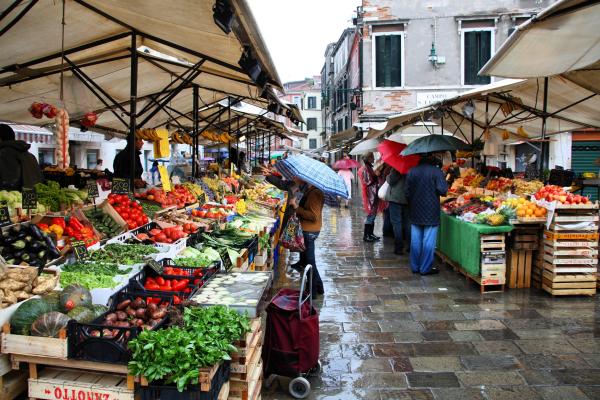IT'S REASONABLY clear to me that the natural tendency of our society at this moment is toward smallness, localness, and intimacy. After several centuries of constantly extending our supply lines around the world so that our food and our energy and our capital came from every corner of the planet, we find it increasingly pleasing and increasingly necessary to hunker down.
Local food is the best example. Our best restaurants and our sharpest cooks are no longer concerned with copying French recipes; for a generation now it’s been all about what’s close to home. Farmers’ markets have been the fastest growing part of our food economy, and suddenly there are more breweries than there were before Prohibition. It tastes good; it feels neighborly.
Next on the agenda: local energy. All of a sudden it seems weird to be piping stuff in from Saudi Arabia, or even Texas, when there’s plenty of good sunshine to be had close to home, when the wind blows over your house more days than not. In the wake of the financial crisis, there’s even a move toward Slow Money and local banking. It’s possible to imagine how it might all fit together into something quite beautiful—a new/old world that actually kind of works, instead of the careening one we’re used to.
But there’s one small problem. Actually, one large problem—the largest we’ve ever faced. The devastation from climate change threatens to undo every one of these sweet trends (if it doesn’t rain for a month, it doesn’t matter how organic your farm is; ditto if it rains every day). And climate change, given the time that we have, can only be solved on very large scales. Say the United States—greatest of carbon sinners—somehow decided to sober up and get its house in order. Even in that dream world, you’d still need to persuade the developing world to go along.
So in some other sense, we’ve never needed our largest scale institutions more: the U.N., the World Bank, all those semi-corrupt agencies that seem mostly to talk the talk while the corporations and governments simply walk right over them. I wish it weren’t so: I wish I could just concentrate on Vermont, where I live. But Vermont can’t be Vermont unless we can get the world moving in the right direction. And it isn’t fair anyway, since the last hundred years of American history is a big reason others are suffering.
The best test, then, of the world’s seriousness going forward may well be what it does about financing the rest of the world’s conversion to renewable energy. In Copenhagen in 2009, then-Secretary of State Hillary Clinton promised that the rich nations would come up with $100 billion annually in “public, private, and other” funding to help with this transition. It’s the bare minimum required, but since then there’s been no solid plan about where it will come from or who will pay.
Hunkering down is deeply attractive and deeply useful. It should be a far more local world (with the wildcard of the internet to keep it from getting too provincial). But before we go about our own business, there’s the outstanding problem of global warming to take care of. We need to somehow get big enough to deal with it before we get pleasantly small.

Got something to say about what you're reading? We value your feedback!
